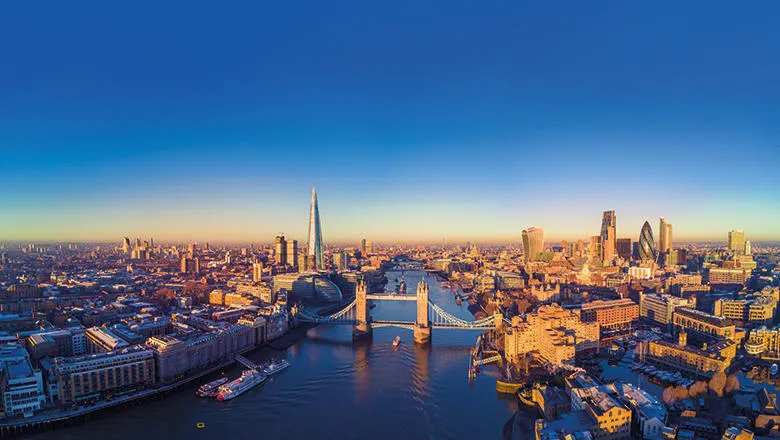19 November 2020
London hardest hit by Covid economic slowdown
The capital's labour market is experiencing a deeper crisis than the rest of the UK

- London’s labour market is experiencing a deeper crisis than the rest of the UK, with steeper falls in both the number of employees on payroll and new job postings.
- Meanwhile private rents have dropped in central and most of inner London, but have held up and even increased in outer London.
Unemployment in London looks set to rise as recruitment remains subdued, according to a new report by Centre for London in association with the Policy Institute and the Centre for Urban Science and Progress at King’s College London. It shows how London’s economy and labour market has changed in the nine months since the coronavirus pandemic hit the UK.
The report is the third in a regular series by both organisations. Since their last analysis in August, the economic impact of the crisis appears to have deepened, with London experiencing more persistent problems than other UK regions.
The analysis found that:
Employee numbers in London have fallen steeply…
Early estimates for October 2020 indicate that there were 200,000 fewer employees on payroll in the capital than the same time in the previous year. This number has fallen more steeply in London than in the rest of the UK. Payrolled employees includes employees who are currently furloughed – so it is likely that a steeper decline has been avoided by the scheme. The number of non-UK nationals in work has declined particularly sharply, which will have had a significant impact in London where these workers made up 25 per cent of employees last year.
More people are claiming unemployment-related benefits as furlough is extended…
Five per cent of Londoners were claiming unemployment-related benefits in October, ahead of the extension of the furlough scheme to March 2021. The number of claimants is likely to rise as an increasing number of employed people on low pay are now eligible for this support.
And unemployment looks set to rise as new job postings remain low…
Job postings on search website Indeed remain 50 per cent below their pre-virus baseline – with London seeing the largest decline of all UK regions.
Despite this gloomy picture, the NatWest/HIS Markit Purchasing Managers’ Index which measures perceptions of business activity remains slightly higher in London than in the rest of the UK, despite the disproportionate hit on the capital’s economy to date.
Rents in central London have seen a huge drop, but continue to increase in outer London…
Average rents in Zone 1 have fallen by 25 per cent compared to last year – as tenants seek space further afield, and there is less international demand and business travel, including through platforms such as Airbnb. Meanwhile in Zones 3-6, rents have increased, which has likely worsened the financial squeeze on Londoners looking for somewhere to live in these areas.
While trips to workplaces and shops remained subdued even before the second lockdown…
Movement across London remained largely unchanged through the summer and early autumn, with trips to workplaces and shops still 40 per cent below their pre-virus levels.
London has seen a lower proportion of workers return to offices compared to other global cities before the latest national lockdown. The exception was New York City which has followed a similar trajectory to London. This points to a deeper disruption to London’s economy, particularly in the city centre where
Richard Brown, Deputy Director, Centre for London said:
“London’s economy struggled to get back on its feet through the summer, as tourists and commuters stayed home. As autumn turns to winter, jobs losses are starting to mount, hitting lower paid workers in sectors such as hospitality particularly hard.
“The Chancellor’s support packages should help soften the blow to Londoners over the next few months. And with vaccines and enhanced testing regimes on the horizon, business confidence remains relatively buoyant – despite the persistent risk of a no-deal Brexit.
“With continuing support from government, and recognition of how deeply the capital’s communities have been affected, London can be ready to rebuild and to lead the UK’s recovery from a tough winter.”
Mark Kleinman, Professor of Public Policy at the Policy Institute, Kings College London said:
“Despite job postings and employee numbers falling even further in London than in the UK as a whole, business confidence, perhaps surprisingly, is higher in the capital than elsewhere.
“This may point to London leading the rest of the UK in economic recovery in the medium-term, as was the case after the Global Financial Crisis in 2008-09.
“Meanwhile, the evidence on office occupancy, retail and rental housing points towards some restructuring of activity and investment between the central area and the rest of London.”
